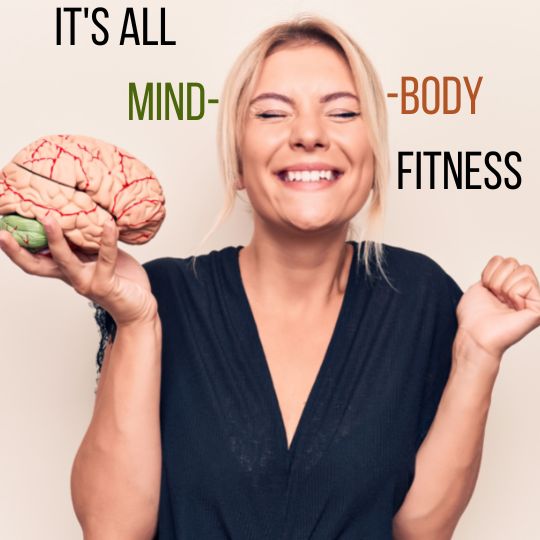All fitness is mind-body fitness.
It’s never made sense on a basic, common-sense level that the concept of mind-body fitness is a benefit exclusive to yoga, tai-chi, Pilates…and nothing else.
Whenever your muscles contract (regardless of what those contractions are labeled) myokines are released into your bloodstream. Myokines are a protein that transmits messages from muscle to other tissues in your body.
When myokines reach the brain, they can affect mood, emotions, and cognition and can initiate beneficial responses there like creating new neurons (called “neurogenesis”) and enhancing synaptic plasticity. (Synapses are the communication junctions between neurons; “plasticity” means they are more adaptable and responsive to learning and memory.)
Strong muscles are essential to healthy brain function.
Exercise stresses muscles and they repair themselves by getting larger and stronger to adapt to the stresses placed on them. And the brain responds in similarly physical ways. Exercise increases the size (or “muscle mass” in the language of muscles) of the hippocampus, the brain structure essential for memory and learning.
Even in people with existing brain disease, enhanced physical activity and motor skill development improve cognitive function.
Loss of muscle mass with aging increases risk of cognitive decline.
Your myokines don’t care if you’re in a bootcamp or goat yoga. The molecular communication between your brain and muscles is robust if your participation in physical activity is robust and regular.
Your body and brain are part of an integrated system you cannot segregate and isolate, even if you wanted to. (And why would you want to?) Go forth and be active, happy in the knowledge that whatever you are doing you are benefitting both brain and body.

